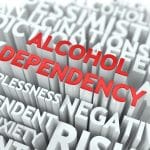It’s important to know what to look for if you know someone who’s at risk for heroin abuse. Abusing heroin leads to permanent health effects and it can even cause death.
Ready to learn what heroin abuse looks like? We’ve put the signs and symptoms together for you:
Signs and Symptoms of Heroin Addiction
If someone you know is hiding a heroin problem, then you’ll notice signs. The most common ones include:
- Irresponsible spending or asking for money.
- Leaving drug use items around, such as baggies, spoons, or syringes.
- Lying about what they’re doing or where they’ve been.
- Mood changes, such as depression or anger.
- Neglecting relationships, such as blowing off a loved one to use drugs.
- Problems at work or school.
- Wearing long-sleeved clothing to hide needle marks.
These are all behavior signs of heroin addiction, but there are physical signs, too. When your loved one is intoxicated, you may see them with:
- Dry mouth
- Itching
- Nausea
- Slow breathing
- Small pupils
- Sudden sleepiness
- Vomiting
They may also complain of stomach pain or constipation. You might notice cognitive changes, such as confusion, trouble with decision-making, or memory loss.
If you see these signs in yourself or your loved one, then it’s time to get help. Heroin abuse is no small matter. Over 15,000 Americans died from heroin overdoses in 2017. That’s a five-fold increase since 2010! Don’t let yourself or your loved one become part of that statistic.
Heroin Withdrawal Symptoms
It’s common to notice signs of heroin withdrawal if your loved one goes too long between uses. You might notice:
- Agitation
- Cravings
- Diarrhea
- Insomnia
- Mood changes
- Muscle pain
- Nausea
- Runny nose
- Shivering
Withdrawal from opioids can be uncomfortable. If you’re around someone while they’re in heroin withdrawal, they will look very sick.
Because withdrawal is so hard, your loved one might resist talking about treatment. But that’s not a good reason to avoid a hard conversation.
Heroin addiction can lead to overdose and death. It’s not worth the risk when you let your loved one keep using drugs. And death isn’t the only nasty side effect of using heroin.
Side Effects of Heroin Use
When you use heroin for a long time, it causes changes to your body. These changes can be damaging. They include:
- Exposure to other drugs: Heroin is often cut with fentanyl, another opioid that is up to 100 times stronger. Because it’s so strong, it causes death easily.
- Heart damage: Injecting heroin that has been cut with other substances can cause clots in the blood vessels. These clots can dislodge and move to your heart, causing damage.
- Infectious disease: Unsafe injected drug use puts you at risk for hepatitis C, HIV (human immunodeficiency virus), and other bloodborne diseases. Even safe injection practices can lead to skin, deep tissue, or vein infections.
- Liver damage: Your liver filters heroin and many other drugs from your bloodstream. Over time, too much drug use can damage the liver, causing a condition called cirrhosis.
- Overdose: It’s not hard to overdose on heroin, especially because you have no way of knowing its strength until you use it. Overdose can make you stop breathing and lead to death.
- Pregnancy problems: Using opioid drugs during pregnancy causes neonatal abstinence syndrome or withdrawal symptoms in the baby after birth. It can also cause low birth weight and developmental problems.
Together or alone, these effects are a reason to stop using heroin. Heroin is very addictive. After only a few uses, you may find yourself needing a larger dose to get high. This is called tolerance and means many users find themselves using often and a lot.
This puts you at higher risk for side effects, but it also puts you at higher risk for overdose and death.
Heroin Treatment Options
Whether you’re a loved one or you have a heroin problem yourself, there are options available for help. You don’t have to struggle through a life of substance abuse (or watch your loved one while they do).
Inpatient treatment with medication-assisted treatment is the best option for heroin treatment. This means:
- Live-in treatment where you stay at the facility day and night until your treatment is complete.
- The use of medications such as Suboxone to prevent opioid cravings.
You may move from inpatient to outpatient treatment after your condition is stable. Your care team will help you find the right time to do this.
For many patients, treatment should last at least three months. If you’re using medication to treat opioid use disorder, then 12 months is the minimum.
That may seem like a long time, but remember that it takes time to relearn how to live without drugs. When you don’t take enough time, you put yourself at risk for relapse.
Get Treatment for Heroin Addiction
Ready to find heroin addiction treatment? You can beat heroin addiction with the help of Northeast Addictions Treatment Center!
Our approach includes customized treatment plans with therapy that’s designed for you and your unique history. There’s no other patient like you, and we’ll treat you with a plan that’s yours alone.
Your treatment can include:
- Activity therapy: Focusing on creative activities gives you a healthy outlet for your energy during recovery.
- Behavior therapy: Treatment can help you understand what makes you want to use heroin so you can avoid those triggers.
- Medication: Your care might include the use of drugs such as Suboxone to prevent heroin cravings.
Written by
Northeast Addition Editorial Team
©2024 Northeast Addition Center | All Rights Reserved
This page does not provide medical advice.





